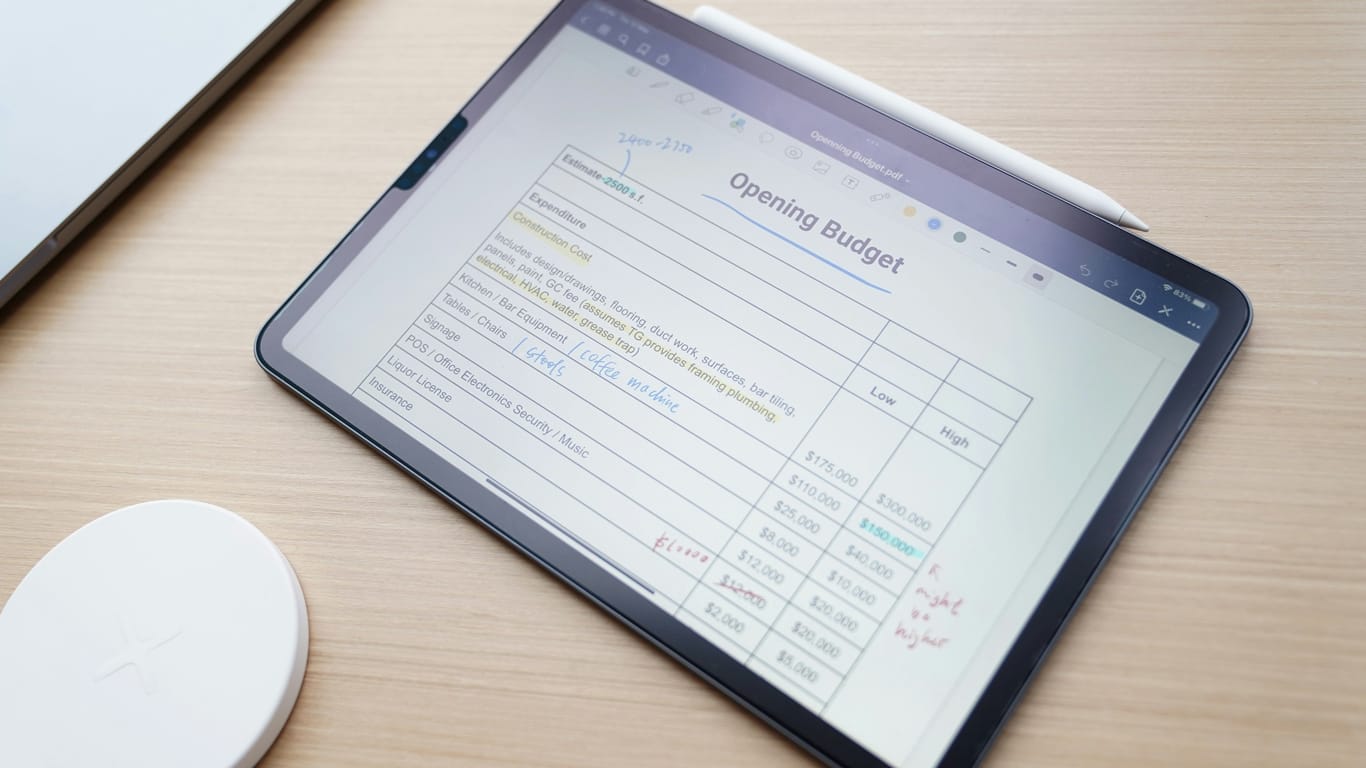In today's world, managing money effectively is more important than ever. Two popular budgeting methods, Zero-Based Budgeting and Incremental Budgeting, can help you take control of your finances. This article will explore both methods, their advantages and disadvantages, and which might be best for your situation.
Key Takeaways
- Zero-Based Budgeting starts from zero, requiring justification for every expense.
- Incremental Budgeting adjusts last year's budget with small changes.
- Zero-Based Budgeting promotes awareness and control over spending.
- Incremental Budgeting is easier and saves time but may lead to unnecessary spending.
- Choosing the right method depends on your income type and personal financial goals.
Defining Zero-Based Budgeting and Incremental Budgeting

What is Zero-Based Budgeting?
Zero-Based Budgeting (ZBB) is a method where you start each budgeting period from zero. This means you need to justify every single expense, rather than just adjusting last year’s budget. This approach helps you focus on what you truly need, making it easier to identify unnecessary costs.
What is Incremental Budgeting?
Incremental Budgeting is a simpler method where you take last year’s budget and make small changes based on your current needs. For example, if you spent $100 on groceries last month, you might increase that to $120 this month if you expect to buy more. This method is often easier to manage but can lead to overspending if not monitored closely.
Key Differences Between the Two Methods
| Feature | Zero-Based Budgeting (ZBB) | Incremental Budgeting |
|---|---|---|
| Starting Point | Zero | Previous Budget |
| Expense Justification | Required for all expenses | Only for new expenses |
| Flexibility | High | Moderate |
| Time Investment | High | Low |
Both methods have their pros and cons, and the best choice depends on your financial situation and goals.
Understanding these budgeting methods can empower you to take control of your finances.
The Benefits of Zero-Based Budgeting
Enhanced Financial Awareness
Zero-based budgeting helps you understand where every dollar goes. By starting from scratch each period, you can see exactly what you need and what you can cut. This method encourages you to evaluate your spending habits closely, leading to better financial decisions.
Greater Control Over Spending
With zero-based budgeting, you have more control over your finances. You justify every expense, which means you can prioritize what truly matters. This approach can help you avoid unnecessary costs and focus on your financial goals.
Improved Financial Forecasting
This budgeting method allows for better planning. By analyzing your needs each period, you can anticipate future expenses more accurately. This can lead to a more stable financial situation, as you are prepared for both expected and unexpected costs.
In summary, zero-based budgeting can transform your financial management by providing clarity, control, and foresight.
| Benefit | Description |
|---|---|
| Enhanced Awareness | Understand where every dollar goes. |
| Greater Control | Justify every expense and prioritize needs. |
| Improved Forecasting | Anticipate future expenses more accurately. |
By adopting zero-based budgeting, you can take charge of your finances and make informed decisions that align with your goals.
The Drawbacks of Zero-Based Budgeting
Time-Consuming Process
One of the main drawbacks of zero-based budgeting is that it can be very time-consuming. Each budgeting period requires you to start from scratch, justifying every expense. This means you will spend a lot of time analyzing your needs and costs, which can be overwhelming.
Difficulty in Managing Variable Expenses
Another challenge is managing variable expenses. Since zero-based budgeting requires justification for every cost, it can be hard to predict and manage expenses that change from month to month. This can lead to stress when trying to keep your budget on track.
Potential for Short-Term Focus
Lastly, zero-based budgeting may encourage a short-term focus. You might find yourself prioritizing immediate needs over long-term goals. This can be risky, especially if you have important future expenses that need attention.
Zero-based budgeting can be a powerful tool, but it’s essential to be aware of its challenges to use it effectively.
Summary of Drawbacks
| Drawback | Description |
|---|---|
| Time-Consuming Process | Requires extensive time to justify every expense. |
| Difficulty in Managing Expenses | Hard to predict and manage variable costs effectively. |
| Potential for Short-Term Focus | May lead to neglecting long-term financial goals. |
The Benefits of Incremental Budgeting
Ease of Use
Incremental budgeting is one of the simplest methods to manage your finances. It allows you to build on the previous year’s budget, making it easy to understand and implement. Here are some reasons why it’s beneficial:
- Quick Preparation: You can prepare your budget faster since you’re just adjusting last year’s figures.
- Less Complexity: There are no complicated calculations involved, which makes it accessible for everyone.
- Consistent Framework: This method provides a stable framework for planning, helping you maintain control over your budget.
Stability and Predictability
Using incremental budgeting gives you a sense of stability. You can expect your budget to remain relatively unchanged from year to year, which helps in planning your finances. For example, if your last year’s budget was $100,000, you might increase it by 5% for the new year, resulting in a budget of $105,000. This predictability can be comforting, especially in uncertain financial times.
Time Efficiency
Since incremental budgeting is straightforward, it saves you time. You can focus on other important financial decisions rather than getting bogged down in complex budget analysis. This efficiency can lead to better overall financial management.
Incremental budgeting is a practical choice for those who prefer a straightforward approach to managing their finances. It simplifies the budgeting process, allowing you to focus on what truly matters.
In summary, incremental budgeting is a user-friendly method that offers stability, predictability, and time efficiency. It’s particularly useful for individuals and organizations looking to maintain control over their finances while navigating changes in expenditures.
The Drawbacks of Incremental Budgeting
Risk of Unnecessary Spending
Incremental budgeting can lead to unnecessary spending. Since this method relies on the previous year's budget, departments may receive more funds than they actually need. This can create a habit of overspending, as managers might feel pressured to use their entire budget to avoid cuts in the following year.
Lack of Flexibility
One major drawback is the lack of flexibility in resource allocation. Incremental budgeting often assumes that all current activities and costs are still necessary without critically assessing them. This can be problematic in a rapidly changing environment where needs may shift.
Potential for Ignoring External Factors
Incremental budgeting may also ignore important external factors, such as inflation or market changes. By focusing solely on past expenditures, it can miss opportunities for cost savings or adjustments that could benefit the organization.
In summary, while incremental budgeting is easy to implement, it can lead to inefficiencies and a lack of responsiveness to changing circumstances.
Remember, a budget should be a living document that adapts to your needs, not just a repeat of the past.
How to Implement Zero-Based Budgeting in Your Household
Steps to Start Zero-Based Budgeting
To begin your journey with zero-based budgeting, follow these simple steps:
- Determine your take-home pay: Write down your total income after taxes.
- Calculate your expenses: List all your monthly expenses, including fixed and variable costs.
- Establish your personal goals: Decide what you want to save for or pay off.
- Allocate all of your income: Make sure every dollar has a purpose, whether it’s for bills, savings, or fun.
Tools and Resources to Help
Using the right tools can make zero-based budgeting easier:
- Budgeting apps: Consider apps like Mint or YNAB (You Need A Budget) to track your spending.
- Spreadsheets: Create a simple spreadsheet to monitor your income and expenses.
- Expense trackers: Use notebooks or digital tools to keep a daily record of your spending.
Tips for Maintaining Your Zero-Based Budget
Sticking to your budget can be challenging, but these tips can help:
- Review regularly: Check your budget weekly to see if you’re on track.
- Adjust as needed: Life changes, so be flexible and update your budget accordingly.
- Stay accountable: Share your goals with a friend or family member to keep yourself motivated.
Remember, zero-based budgeting is a powerful tool that can help you gain control over your finances. It requires commitment, but the rewards are worth it!
How to Implement Incremental Budgeting in Your Household
Steps to Start Incremental Budgeting
- Review Last Month’s Budget: Look at your previous month’s expenses to see where your money went.
- Identify Changes: Think about any changes in your spending for the upcoming month. Will you need more for groceries? Less for entertainment?
- Adjust Your Budget: Make small adjustments to your budget based on your needs. For example, if you plan to drive more, shift some funds from public transport to gas.
Tools and Resources to Help
- Budgeting Apps: Use apps like Mint or YNAB to track your spending easily.
- Spreadsheets: Create a simple spreadsheet to keep track of your income and expenses.
- Financial Journals: Write down your spending habits to identify patterns.
Tips for Maintaining Your Incremental Budget
- Stay Consistent: Regularly check your budget to ensure you’re on track.
- Be Flexible: Adjust your budget as needed throughout the month.
- Track Every Expense: Keep a record of all your spending to avoid surprises.
Remember, budgeting is a journey. Small adjustments can lead to big changes in your financial health!
Comparing Zero-Based Budgeting and Incremental Budgeting for Personal Use

When it comes to managing your finances, understanding the differences between zero-based budgeting and incremental budgeting can help you choose the right method for your needs. Each approach has its own strengths and weaknesses, making it essential to evaluate which one fits your lifestyle best.
Which Method is Best for Fixed Incomes?
For those with a fixed income, incremental budgeting might be the way to go. This method allows you to make small adjustments based on your previous budget, making it easier to manage your expenses. Here are some reasons why it may work for you:
- Simplicity: You can easily adjust your budget based on last month’s spending.
- Stability: Your fixed expenses remain consistent, providing predictability.
- Time Efficiency: You don’t have to start from scratch each month.
Which Method is Best for Variable Incomes?
If your income varies, zero-based budgeting could be more beneficial. This method requires you to allocate every dollar you earn, ensuring that you account for all your expenses. Consider these points:
- Flexibility: You can adjust your budget based on your income for the month.
- Awareness: You’ll have a clearer picture of where your money goes.
- Control: You can prioritize essential expenses and savings.
Adapting Each Method to Your Lifestyle
Both budgeting methods can be tailored to fit your unique situation. Here are some tips:
- Assess Your Income: Determine if it’s fixed or variable to choose the right method.
- Track Your Expenses: Use apps or spreadsheets to monitor your spending.
- Review Regularly: Adjust your budget monthly to reflect changes in your financial situation.
Remember, the goal of budgeting is to help you manage your money effectively. Choosing the right method can empower you to take control of your finances.
In conclusion, whether you opt for zero-based budgeting or incremental budgeting, understanding your financial habits and needs will guide you in making the best choice for your household.
Common Mistakes to Avoid with Both Budgeting Methods
Overlooking Small Expenses
One of the biggest mistakes you can make is overlooking small expenses. These little costs can add up quickly and throw your budget off track. Here are some common small expenses to watch out for:
- Daily coffee runs
- Snacks and drinks
- Subscription services
Failing to Adjust Regularly
Another common pitfall is failing to adjust regularly. Your financial situation can change, and your budget should reflect that. Make it a habit to review your budget monthly and adjust for any changes in income or expenses. This will help you stay on top of your finances.
Not Tracking Expenses Accurately
Lastly, not tracking your expenses accurately can lead to significant issues. You might think you know where your money is going, but without proper tracking, it’s easy to miss important details. Consider using a simple app or a spreadsheet to keep track of your spending. This will give you a clearer picture of your financial habits.
Keeping a close eye on your spending habits is essential for successful budgeting. It helps you make informed decisions and avoid unnecessary financial stress.
By avoiding these common mistakes, you can make the most of your budgeting method, whether it’s zero-based or incremental. Stay aware, stay flexible, and keep your financial goals in sight!
Real-Life Examples of Zero-Based and Incremental Budgeting

Case Study: A Family Using Zero-Based Budgeting
Imagine a family that decides to adopt zero-based budgeting. Each month, they start with a clean slate, allocating every dollar they earn to specific expenses, savings, and debt payments. They list their expenses and estimate how much they need for each category. For example:
| Expense Category | Amount Allocated |
|---|---|
| Rent | $1,200 |
| Groceries | $400 |
| Utilities | $200 |
| Savings | $300 |
| Entertainment | $100 |
| Debt Payment | $200 |
This method helps them see where their money goes and encourages them to justify every expense. They find that by tracking their spending closely, they can save more and reduce unnecessary costs.
Case Study: A Family Using Incremental Budgeting
Now, consider a different family that uses incremental budgeting. They take last month’s budget and make small adjustments based on their current needs. For instance:
- Last month, they spent $150 on dining out.
- This month, they expect to spend $200 because they plan to celebrate a birthday.
- They reduce their grocery budget from $500 to $450 to accommodate this change.
This method is straightforward and allows them to maintain stability in their finances. However, they might overlook areas where they could cut back, leading to unnecessary spending.
Lessons Learned from Each Approach
Both budgeting methods have their strengths and weaknesses. Here are some key takeaways:
- Zero-based budgeting promotes awareness and control over spending but can be time-consuming.
- Incremental budgeting is easier to manage but may lead to complacency and overspending.
Understanding these methods can help you choose the right approach for your financial situation. Evaluate your needs and lifestyle to find what works best for you!
Expert Opinions on Zero-Based Budgeting vs Incremental Budgeting
Insights from Financial Planners
Financial planners often emphasize the importance of understanding both budgeting methods. They suggest that:
- Zero-based budgeting can lead to better financial awareness, as every expense must be justified.
- Incremental budgeting is easier to implement, especially for those with fixed incomes.
- Each method has its place depending on your financial goals and situation.
Advice from Personal Finance Bloggers
Many personal finance bloggers advocate for a balanced approach:
- Evaluate your financial situation before choosing a method.
- Consider using zero-based budgeting if you want to cut unnecessary costs.
- Incremental budgeting may be better for those who prefer stability and predictability.
Research Findings on Budgeting Methods
Research shows that:
- Zero-based budgeting can be more effective in identifying wasteful spending.
- Incremental budgeting often leads to a gradual increase in expenses, which can mask inefficiencies.
- Both methods can be adapted to fit personal needs, but understanding their strengths and weaknesses is crucial.
Choosing the right budgeting method can significantly impact your financial health. Understanding the pros and cons of each approach will help you make informed decisions that align with your financial goals.
In summary, whether you lean towards zero-based budgeting or incremental budgeting, the key is to find a method that resonates with your financial habits and objectives. Zero-based budget: the opposite of an incremental budget, the zero-based budget begins with zero expenses assumed and requires the business to justify every expense.
Conclusion
In summary, both zero-based budgeting and incremental budgeting have their own strengths and weaknesses. Zero-based budgeting is great for those who want to have a clear view of where every dollar goes, making it easier to adapt to changes. However, it can take a lot of time and effort to manage. On the other hand, incremental budgeting is simpler and quicker, making it a good choice for those with steady incomes. Ultimately, the best method for you depends on your financial situation and goals. Take the time to think about what works best for you, and remember that budgeting is a personal journey. With the right approach, you can take control of your finances and work towards a brighter financial future.
Frequently Asked Questions
What is zero-based budgeting?
Zero-based budgeting is a method where you start from zero each month. You plan how to spend every dollar you earn, making sure all your money has a purpose, like paying bills or saving.
How does incremental budgeting work?
Incremental budgeting means you take last month’s budget and make small changes. You look at what you spent before and adjust it for the new month.
Which method is easier to use?
Incremental budgeting is generally easier because you’re just tweaking what you already have. Zero-based budgeting can take more time since you start from scratch.
Can I use both methods together?
Yes, you can mix both methods! You can use incremental budgeting for regular expenses and zero-based budgeting for special projects or savings.
What are the main benefits of zero-based budgeting?
Zero-based budgeting helps you be more aware of your spending. It gives you control over your money and helps you plan better for the future.
What are the downsides of incremental budgeting?
Incremental budgeting can lead to overspending because it relies on past budgets. You might not notice when certain expenses are too high.
How do I start zero-based budgeting?
To start zero-based budgeting, write down your income and list all your expenses. Make sure every dollar is accounted for, so you know where your money goes.
Is incremental budgeting good for everyone?
Incremental budgeting works well for people with steady incomes and consistent expenses. If your income or expenses change a lot, it might not be the best fit.



